Sommaire
Pagination de ldition papier
Guide
 InterVarsity Press
InterVarsity Press
P.O. Box 1400 | Downers Grove, IL 60515-1426
2022 by Center for House Church Theology from Urban China
All rights reserved. No part of this book may be reproduced in any form without written permission from InterVarsity Press.
InterVarsity Press is the publishing division of InterVarsity Christian Fellowship/USA. For more information, visit intervarsity.org.
Scripture quotations, unless otherwise noted, are from The Holy Bible, English Standard Version, copyright 2001 by Crossway Bibles, a division of Good News Publishers. Used by permission. All rights reserved.
While any stories in this book are true, some names and identifying information may have been changed to protect the privacy of individuals.
The publisher cannot verify the accuracy or functionality of website URLs used in this book beyond the date of publication.
Cover design and image composite: David Fassett
ISBN 978-1-5140-0414-2 (digital)
ISBN 978-1-5140-0413-5 (print)
This digital document has been produced by Nord Compo.
TO JIANG RONG AND SHU YA.
I thank my God in all my remembrance of you,
always in every prayer of mine for you all making my prayer with joy,
because of your partnership in the gospel from the first day until now.
And I am sure of this, that he who began a good work in you
will bring it to completion at the day of Jesus Christ.
PHILIPPIANS 1:3-6
Weeping may tarry for the night,
But joy comes with the morning.
PSALM 30:5
FOREWORD
IAN JOHNSON
When I first met Wang Yi, he ushered me into a conference room overlooking a landscape of old and slightly run-down office buildings in central Chengdu, western Chinas most important metropolis. It was 2011 and his church was then called Early Rain Reformed Church, later taking the name Early Rain Covenant Church. Like many churches that werent registered with the government, it was housed in an office building. This one was fairly old, with one functioning elevator that groaned its way up to the seventeenth floor. I had taken one look and walked up the stairs.
I explained that I was working on a book about the revival of religion in China. I had been to many rural churches in traditional Christian heartlands of China, such as the province of Henan, but felt that big, urban churches like his were becoming more important. Would he let me sit in on his services and talk to congregants?
Pastor Wang immediately agreed on two conditions: first, no photography in the church, and second, if I wanted to quote anyone, I was welcome to do so but needed their permission. His reasoning was simple: Early Rain had nothing to hide. It was a public institution. All were welcome, and no one should be restricted in what they wrote. So if I wanted to visit his church, that was my right. And if I wanted to write something, that was also my right as a free person. His restrictions were simply means to respect the privacy of those who attended and to keep the service dignified.
At that point I had worked in China off and on since the mid-1980s. I knew that for me to visit his church regularly carried inherent risks. I asked him about the building security guards downstairs and whether they would report to the authorities that a foreigner was regularly entering the building and trudging up to the seventeenth floor.
Yes, he said. But foreigners arent banned from attending church. We are an open organization. We have nothing to hide. Come and worship with us.
We talked a bit further and I realized that compared to the many challenges that Early Rain faced, I was probably insignificant. And so I agreed to his conditions and began attending the church regularly, spending hundreds of hours in services, seminaries, prayer groups, and conversations with congregants, almost all of whom were happy to share their experiences.
That began what for me was an unusual religious experience. I was raised a Christian, in Canada, as an Anglican (Episcopal in the United States) and felt pretty comfortable going to church. But to me the beauty of the service largely resided in the music and the Shakespearean language of the King James Bible or the Book of Common Prayer. Most priests I had encountered didnt really preach convincing sermons, and church seemed little more than a worthy Sunday-morning ceremony that contained important lessons about living a good life.
Sitting in on Wang Yis services was something else. His sermons were not homilies he squeezed into the service quickly so everyone could get to the parish hall for coffee and donuts. They were beautifully crafted, logically organized, educational experiences in Christianity. Mostly they were long. It was nothing for him to talk for half an hour and most sermons went on for forty-five minutes. And yet they didnt seem long. He didnt present Christianity as an obligation or chore but as an essential part of making sense of the society around us. At the time he was thirty-eight years old and had only converted six years earlier, in 2005, and so he was on a journey toolearning the Bible and teaching it to us.
This isnt a paean to Wang Yi. Like many leaders of unregistered churches in China, he was an autodidact, who had memorized the Bible but saw things in, at times, dogmatic ways. His views on women (they could not serve as presbyters, let alone be pastors) were also not mine. And he had knock-down-drag-out battles with people with whom he disagreed, which didnt seem like the most Christian approach to problem solving. I think other congregants had similar concernssome would roll their eyes at his battles or joke about his fiery temperament.
But for them and me, attending Wang Yis church was a profound experience. Part of it was that people felt that they were participating in something completely clear and opensomething they could participate in and help manage. This is a radical idea in China, where someone else, usually the Chinese Communist Party, is running ones life.
Part of it also was his personal charisma, speaking skills, and sharp mind. His sermons were electrifying, not in the sense of rhetorical histrionics but because of the clear, insightful way he explained the Bible, so that it made sense to the daily life of someone living in China. He discussed real problems and related them back to this religion, which he didnt see at all as Western or foreign but a universal faith that just happened to have been founded in the part of the world that we today call the Middle East.
My book included other faiths practiced by ethnic Chinese or Han people in China, and so I also spent time with Buddhists, Daoists, and folk religious practitioners. These were also idealistic people who were trying to bring a moral structure to their followers. This goal remains important to many Chinese, who feel buffeted by the essentially amoral world that the Chinese Communist Party has erected since taking power in 1949. Many of these other religious leaders also had committed followers who found meaning and value in their spiritual messages.
But Wang Yiand other unregistered Protestant churchesconnected the most directly with their followers. They offered the most help and advice and were best organized, often setting up schools, seminaries, and youth groups. This helps explain why Protestant Christianity was widely regarded as Chinas fastest-growing religion until a crackdown began in the 2010s.

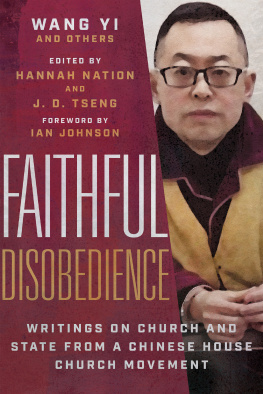
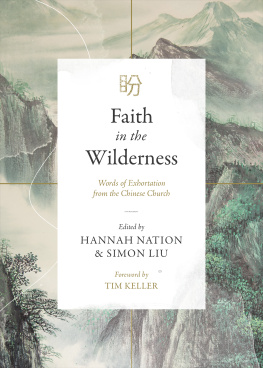

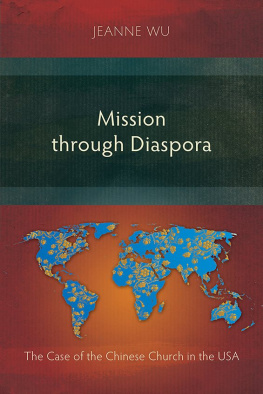
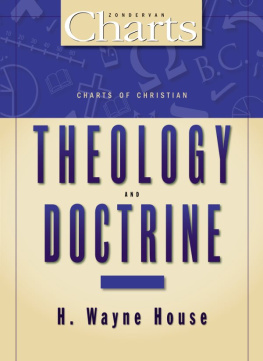
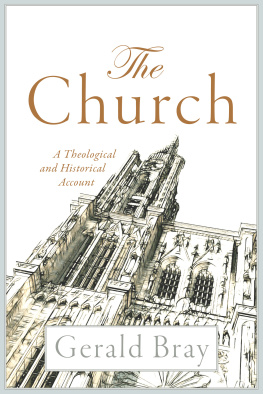
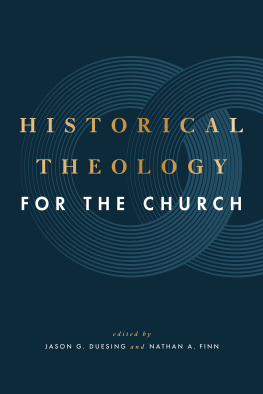
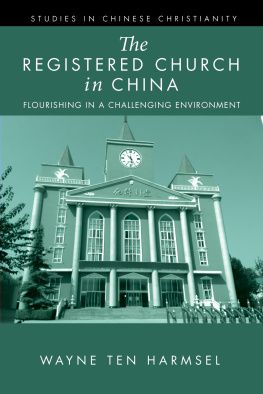
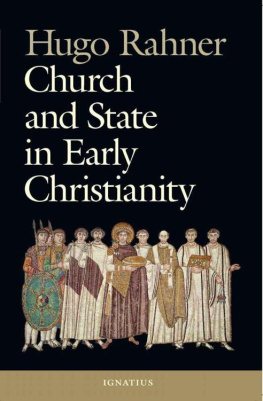
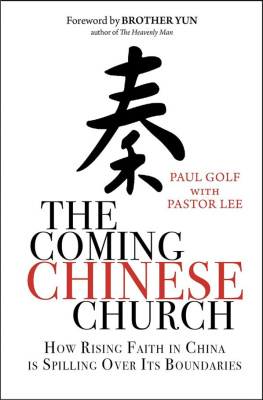
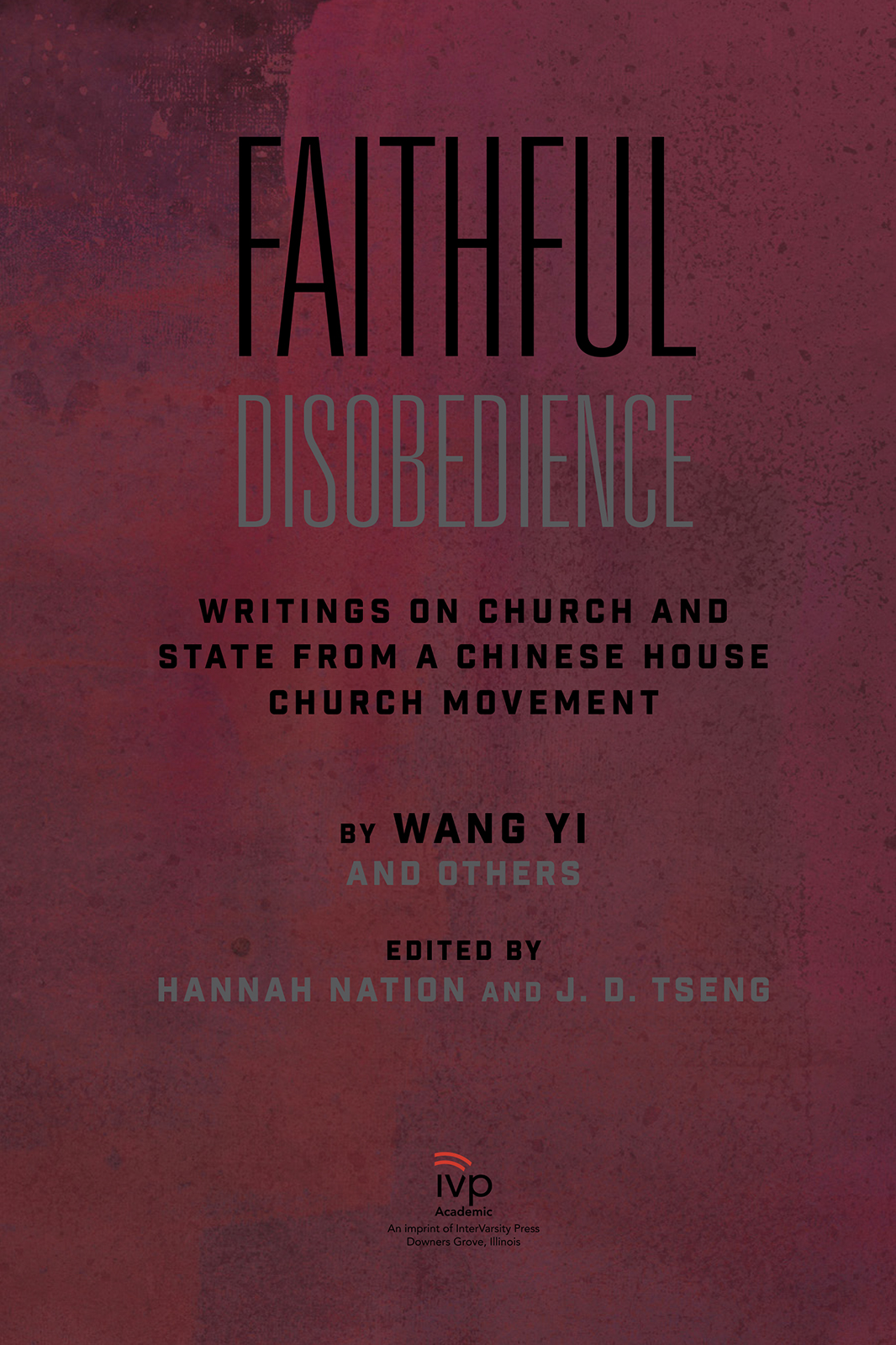
 InterVarsity Press
InterVarsity Press